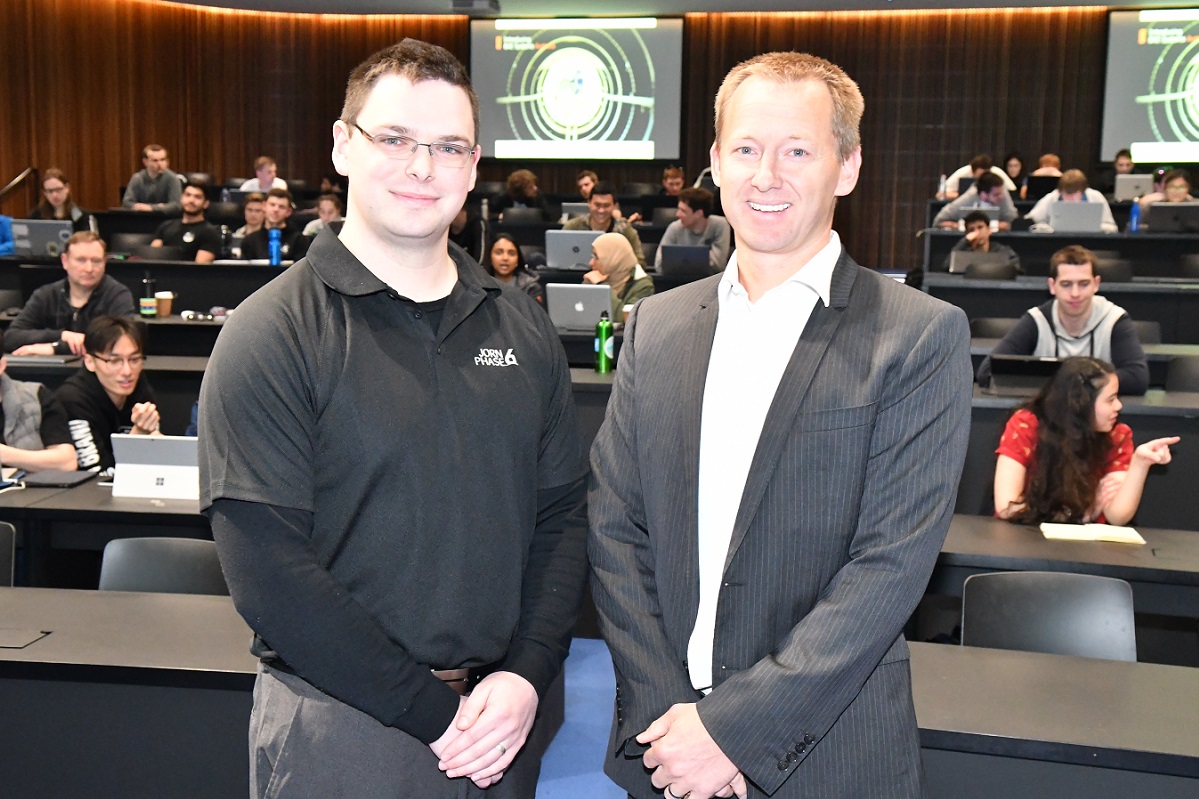
BAE Systems plans to revolutionise naval shipbuilding facilities in SA by establishing a digital shipyard in Adelaide, after being selected to design and build Australia’s fleet of nine Hunter class frigates.
The $35 billion Future Frigate program opens up hundreds of new opportunities for university graduates that want to be a part of the design and construction process – but what is a digital shipyard and how do you design it?
That’s where the Defence Innovation Challenge at Tonsley can make a positive impact – offering insights from industry experts and access to major projects in the pipeline.
Associate Professor in Innovation, Giselle Rampersad, from the College of Science and Engineering, says the Challenge is an opportunity for information technology and engineering students to establish links with wider defence initiatives.
“The focus is on project management and advanced manufacturing in defence, with a particular focus on ship building and industry 4.0.
“This includes the development of a prototype for the defence industry. It is very relevant to a broad range of students at Tonsley. Multi-disciplinary teams can also generate diverse and innovative approaches to solve real world defence problems,” Associate Professor Rampersad says.
The Challenge also highlights the importance of building strong industry connections for passionate students looking to enter the booming sector.
So on Friday July 27, Associate Professor Rampersad invited two BAE Systems representatives to speak to hundreds of third year students at Tonsley. They provided an overview of their current projects and the potential opportunities available in the $90 billion worth of major shipbuilding projects in the coming decades.
“It benefits both the students graduating within the next two years and the company, who wants to create a pipeline of skilled staff for major projects which will attract talent into the industry,” Associate Professor Rampersad says.
Julian Bennett, originally based in the UK, relocated to Adelaide where he is defining BAE System’s industry 4.0 strategy and developing advanced design and manufacturing techniques for ship-building. He provided insights into these areas for students.
Alexander Wright is an upcoming engineer who is part of the company’s graduate program. He discussed his positive personal experience as a recent graduate at BAE Systems, provided examples of the international defence projects he worked on, and offered an insight into the graduate program.
“Our students begin placements of up to five months so hearing from experienced professionals helps them develop the knowledge to maximise their placement opportunity and more broadly manage projects upon graduation.,” Mr Wright says.
He inspired students by offering his insight into the opportunities in Australia and overseas- touching on the importance of building a network of contacts in the defence sector.
Associate Professor Rampersad says the positive experience will be a strong grounding for students undertaking placements over the remainder of the year.
“This exposure for such a broad group of relevant students is a distinctive element of the Flinders Science and Engineering curriculum.
“It is the first year that the Challenge is running but I am hoping that it can be expanded to a broader group of Flinders students in future years across other disciplines,” she says.
The Defence Innovation Challenge focuses on project management and advanced manufacturing in defence – with a particular focus on ship building.
Students in the class complete a project including a three-minute video, an oral presentation, a final report and they also implement an initial milestone or prototype.
“This includes students studying IT, software, robotics, electronics, cybersecurity, digital media, mechanical and civil engineering.” Associate Professor Rampersad says.

